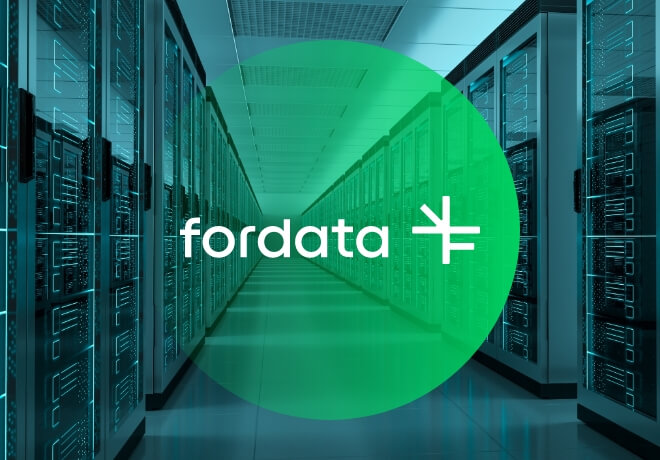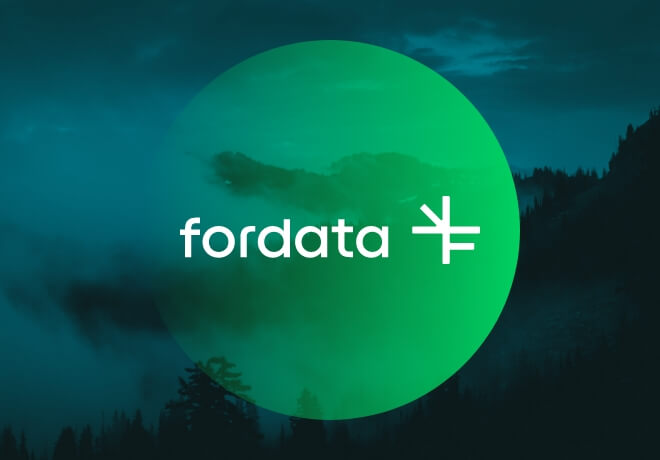Why should I pay for VDR when I can use Dropbox?’ – our clients ask this question sometimes. Yet the answer is not that straight. Dropbox and Virtual Data Room are, after all, two completely different systems created to satisfy different business needs. So, yes, Dropbox might be better suited to meet some of them, but there are tasks I wouldn’t dare undertake using it.
In short:
- Dropbox is a good tool for storing large files and sharing them
- Dropbox is not dedicated to sharing highly sensitive documents
- As an alternative, Virtual Data Room is a solution that provides full data security and control, and may be cheaper than Dropbox
What is Dropbox and when to use it?
Dropbox is a system that allows collaboration on documents, mainly internally within an organization. Team members can share and synchronize the work of the entire staff with it, which is a plus. Dropbox is a good solution for sharing current company documents such as presentations, agendas, meeting notes, sales offers, photos etc. It is also a perfect alternative to email, as far as sending large files is concerned. Dropbox safety is a compromise between usability and data protection (more on that later), so it is better to use the platform for sending insensitive files. The simplest way to put it would be:
Use cases
- Teamwork
- Cooperation between branches within one company
- Implementation of various types of projects with low requirements for confidentiality
- An alternative to sending large files via email
- A central repository of corporate documents
What is Virtual Data Room and when to use it?
In contrast, a Virtual Data Room is a system created for sharing confidential data outside the company, which will prove as a perfect alternative to Dropbox. The comprehensive approach to data protection, which goes far beyond IT solutions, differs greatly from Dropbox’s safety measures, assuring top confidentiality of exchanged information.You can read more about it in the article “Virtual Data Room – Everything you need to know”.
Use cases:
- Due diligence
- Mergers and acquisitions (sale of a company, assets or an organized part of an enterprise)
- Issue of shares (IPO or SPO)
- Sales of commercial real estate (office buildings, shopping centers, hotels)
- Audit (legal, financial, pharmaceutical)
- Sharing confidential documents with an advisor, lawyer, or auditor
- Project implementation with an external partner
- Joint Venture
- Contract Management
- Sales or licensing of pharmaceutical production
- Credit negotiations with a bank or a bank consortium
- Sales of debt portfolios
„Virtual Data Room is designed to make file sharing safe and to ensure that it is not possible to modify their content.”
„Dropbox is designed to make file sharing easy, collaborative, but not exactly safe.”
Dropbox vs Virtual Data Room – pros and cons
Although I represent a VDR provider, it is not my intention to discourage you from using Dropbox. I am convinced that this tool is able to meet the needs of many businesses and individual practices. When I worked at an advertising agency, I used Dropbox myself to transfer large graphic files. But these files were of low business relevance – speed and the ease of transfer where the most crucial in that case. And Dropbox seemed to work pretty well. However, with my current knowledge, I would never decide to use Dropbox to transfer sensitive data, let alone implementing it in such processes as company sales, Due Diligence or audit. Why?
| Observation | Conclusions |
|---|---|
| OBSERVATION #1: Dropbox security is limited | Dropbox offers a "read-only" feature, but in reality, it does not prevent the file from being downloaded. |
| Data Rooms provide file security, preventing them from being saved to disk or printed. Users only have preview access and cannot copy text. | |
| In Due Diligence, especially concerning the company selling process, losing control over who has access to critical information is unacceptable. It impacts the final valuation, and if it falls into the hands of competitors, it affects the company's competitive position, etc. | |
| OBSERVATION #2: The key role of Support team | Contacting Dropbox's technical support can be difficult. Technical issues can affect both administrators and users. |
| In the case of Due Diligence, consider using a solution that provides access to technical support in Polish, 24 hours a day, 7 days a week. | |
| Companies' policies regarding their employees' access to external systems (such as SaaS) are restrictive, especially in the financial, energy, and Telco industries. | |
| Virtual Data Room specialists can effectively collaborate with company IT departments. | |
| Additional consequences of the inability to access technical support: - prolonged Due Diligence duration, - loss of access to vital information, - inability to negotiate transaction terms, - loss of transaction opportunities. | |
| OBSERVATION #3: Dropbox and VDR encryption is similar, but does not protect the same | Dropbox lacks typical Data Room features such as granting permissions per file, comprehensive file search, and detailed user activity reporting. |
| File protection in Dropbox is less comprehensive than in VDR, which may lead to a higher risk of data breaches. | |
| In VDR, files are encrypted with a 256-bit EV SSL certificate, while Dropbox uses AES encryption but does not provide an equally high level of security. | |
| Dropbox does not offer detailed user activity reporting. | |
| In Dropbox, deleting an account does not immediately remove data from the server. | |
| OBSERVATION #4: Let’s take care of the user interface | Dropbox has a simple and intuitive interface for users. |
| The synchronization feature allows for automatic file transfer from the computer to Dropbox. | |
| Manually uploading data to VDR ensures that all files have been loaded, which may not be certain with automatic synchronization, which does not always work 100%. |
What do the costs look like?
No matter the purpose of the system, looking at pricing policy, Dropbox has become a more costly solution if we use it for a project where 15+ user accounts are needed. In 2022, the price of Dropbox Business Plus for 15 users amounts to EUR 360 per month, while FORDATA VDR costs EUR 199 per month. So while facing a project that involves sharing of confidential information, I don’t think using the San Francisco platform is worth the risk. The alleged Dropbox safety may simply prove too weak.
Article updated 26.01.2024.
Did you like the article?

Together with the #FORDATAteam, I plan and coordinate all sales and marketing initiatives. My passions, such as sports and travel, influence our approach - we always emphasize building international relationships and teamwork.
Do you want to exchange knowledge or ask a question?
Write to me : Aleksandra Prusator page opens in new window
Preparing for Due Diligence? Buy a self-service version of FORDATA VDR and do it proficiently!
BUT NOW Buy a self-service version of FORDATA VDR-
01 . ISO 27001:2022 – A New Version, the Same Goal: Top-Level Information Security

FORDATA, a leading provider of Virtual Data Room (VDR) solutions in Central and Eastern Europe, has achieved certification for compliance with the ISO/IEC 27001:2022 standard—faster than the industry average.
25.06.2025
-
02 . DORA: New Digital Resilience Regulations and Support from Fordata

The DORA regulation is a comprehensive set of rules on ICT risk management, primarily aimed at entities supervised by the Financial Supervision Authority (KNF) and their service providers.
13.11.2024
-
03 . Fake software aggregators – how to identify them?

Fake software aggregators and Virtual Data Room industry. See how developers try to deceive their customers with fake software comparison websites.
14.03.2024
-
04 . Can Microsoft One Drive or Google Drive replace VDR?

Can Microsoft’s and Google’s Drive replace VDR? Popular storage clouds are convenient but can they provide the same level of security?
29.12.2023
-
05 . VDR in due diligence process

M&As are a permanent element of the economic world. Their goal is to achieve strategic and financial benefits by expanding markets, diversifying products and production processes.
27.05.2023
-
06 . Cloud data encryption - what to know before choosing a provider?

Technically and practically speaking, all popular cloud-based tools are securely encrypted. In fact, this means that we do not have to worry about the problem of data encryption…
22.08.2022
-
07 . Cybersecurity - what should companies pay attention to?

Entrepreneurs today look at remote work without fear, although many could not imagine effective work outside the office earlier this year. The pandemic proved that…
30.09.2020
-
08 . Flexible office - how to respond to new needs?

Companies have returned to offices with new needs. Entrepreneurs are starting to look for flexible rental models thanks…
24.08.2020
-
09 . Are your email attachments safe?

The modern office cannot function without email. According to the Radicati group, a statistical employee receives 121 messages per…
02.03.2020
-
10 . How to black out text in a PDF document correctly?

Document redaction has many faces – it may turn out that overwriting of the text in our document, which at first glance looks…
27.02.2020
-
11 . Safe cloud and the user - a marriage of convenience

According to a report on cloud computing prepared by McAfee, up to 87% of the companies surveyed believe that…
03.02.2020
-
12 . Rules of Safety Policy in FORDATA VDR

The FORDATA team is aware that even well-secured infrastructure has no chance against any infection resulting from human error.
31.10.2019
-
13 . Dropbox security - what should your business know?

Dropbox makes collaboration and sharing of documents easier but is the platform secure enough for our company to process confidential information with it? What to…
18.10.2019
-
14 . Cloud Data Storage And File Security

The internet has become a common thing in companies’ lives. The enormity of dedicated services, fast transfers and increasing mobility…
31.07.2019
-
15 . FORDATA wins the 2019 Premium Usability and Rising Star Award

FORDATA has earned the prestigious 2019 Premium Usability and Rising Star Award from FinancesOnline, a popular B2B software…
30.04.2019
-
16 . Due Diligence audit using Virtual Data Room - security in your company

The process of sharing confidential information can be greatly improved by using Virtual Data Room. Preparing for an audit?
14.01.2019
-
17 . What is electronic data repository?

What is electronic data repository and why to use it? Maybe you already do? Read about the features and advatnages of a good online repository.
04.12.2018
-
18 . FORDATA recognized with 2 IT Security Software Awards!

FORDATA got Two Awards through a renowned organization FinancesOnline, a fastest growing independent review platform.
01.02.2018
-
19 . Virtual Data Room: Everything you need to know

What is a virtual data room? What benefits can we achieve by using the system in merger and acquisition transactions?
25.10.2017
-
20 . GPG standard - a word on encrypting confidential data

Some users want it 101% safe. If the files we share via cloud services really need that extra layer of protection, encrypting them with a GPG standard might be a good idea.
13.07.2016
-
21 . How can we help you with Due Diligence?

Time plays a major role in M&A transactions. Even the smallest improvement that saves time needed to prepare and perform Due Diligence…
10.03.2014



